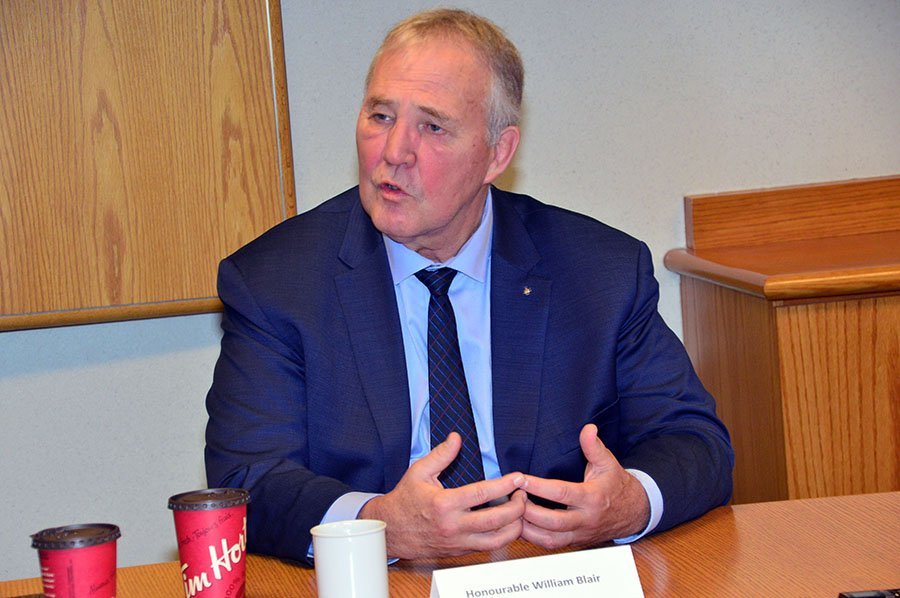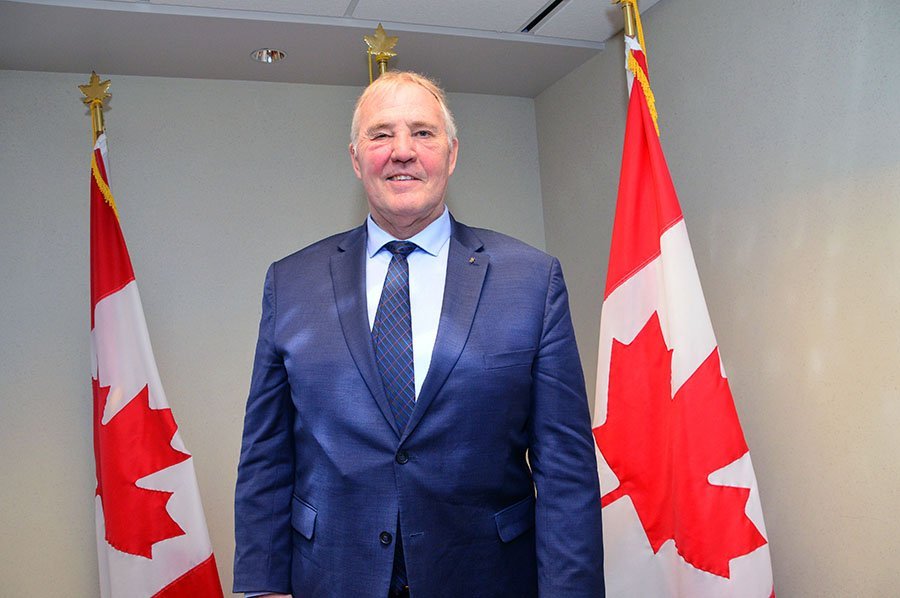
Martin C. Barry
As the federal minister responsible for the implementation and enforcement of Canada’s new marijuana legalization and regularization laws, there’s no mistaking the fact Bill Blair stands one hundred per cent behind the Trudeau Liberal government’s groundbreaking policy.
If anybody might be in a position to question the government’s stance, it could easily be Blair. The veteran policeman and former chief of the Toronto Police Service spent years fighting on the front lines against drug-related crime as a narcotics squad officer.
Former narcotics cop
“As a police officer for 40 years, I was involved in drug enforcement,” Blair, who is Minister of Border Security and Organized Crime Reduction, said in an interview with Newsfirst Multimedia while on a ministerial stopover in Montreal.
As chair of the Canadian Association of Chiefs of Police’s Organized Crime Committee, he said he was “well aware of the impact that illegal drug trafficking as controlled by organized crime was having in all of our communities.”
Drugs and violence linked
While noting that the link between organized crime and illegal drug trafficking had a lot do with an escalation of violence in Canadian cities these past few decades, Blair also pointed out that organized crime was earning billions of dollars in profits each year being the sole purveyors of a range of illegal substances that included marijuana.
Since the only means of controlling the situation available to society was criminal sanction, young people got swept up in the overall enforcement of the country’s drug laws, “which was disproportionate,” added Blair, “and was actually causing in many cases more harm. We wanted to discourage their use of the drug. But we also did not want to saddle that child with a criminal record for the rest of their life.”
Approached by Trudeau
According to Blair, all of this transpired long before he was asked by Justin Trudeau to run in the suburban Toronto riding of Scarborough Southwest in the October 2015 election. Blair and the future Prime Minister discussed the possibility of radically changing Canada’s cannabis laws.
“We talked about Canada’s control of cannabis. And he said ‘What do you think of legalizing it?’ And I said if we lift the criminal prohibition it gives the opportunity to get the situation back under control. Because currently the situation we were in was we had the highest rates of use among our kids in the world. And this is a dangerous drug for children. This is a drug that can have very serious implications for children.”

One third were breaking law
Leading up to the changes last October by the Liberal government to the country’s longstanding prohibition on cannabis, more than a third of Canada’s population had been breaking the law, Blair added. As such, “we began the process of looking at how do we reduce the harm of this drug.
“Some people say to me, ‘Well you’ve legalized cannabis.’ And I say no – we’ve regulated the daylights out of it. We’ve brought in all sorts of new rules – enforceable, proportionate, sensible rules – that control every aspect of its production, its sale and its consumption.
Says no to other drugs
“Whereas before we had only one tool and it was like a sledgehammer and we were trying to drive a nail. And no one wanted to swing the sledgehammer. But now we have the right suite of tools to control the system. And I believe it’ll result in a healthy situation for our children and a safer situation for our communities.”
Blair insisted that neither he nor the Liberal government would ever consider going down the same route with other street drugs as it has done with marijuana. “Cannabis is not a drug that kills people,” he said.
“But unfortunately with other more serious drugs which are deadly – the opioid crisis, for example, crystal methamphetamine, which is ravishing some of our prairie and northern communities – those drugs represent such a significant risk. And we don’t have a system of regulated production and control.
Meth and fentanyl out
“There is no alternative. We can go to a Health Canada-regulated production facility for marijuana, for cannabis. But we’re not going to create a similar thing for crystal methamphetamine. So there will be no other source other than the criminal source.”For drugs like methamphetamine and fentanyl, Blair said an important of the approach for dealing with them is to “interdict the supply to keep those drugs out of our country. We need to be very effective at restricting the supply. But we also have an enormous amount of work to do – and we have embarked as a government on this – to reduce the demand for those drugs. And that’s to prevent people from beginning to use them in the first place.”



